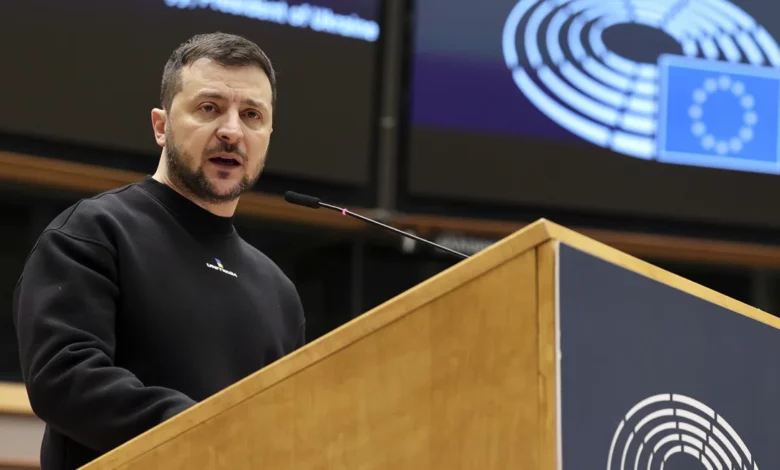
The European Union’s decision to open negotiations with Ukraine to join the bloc on Thursday night is both a tangible step forward and a major symbolic moment. Ukrainian President Volodymyr Zelensky had spent the past few days telling his European counterparts how important joining the EU was to Ukraine.
But the celebrations in Kyiv were tempered when just hours later, the EU said it had not been able to reach an agreement on sending a $55 billion tranche of new funding for Ukraine.
This is far more than a fly in the ointment for Ukraine. It comes after months of fears among Ukrainian and other European officials that the West – so united in its strength for Ukraine since February 2022 – had finally tired of the endless talks about helping Ukraine.
Individual moments matter in diplomacy, of course. Symbolic moments do mean something and the decision to start accession talks with Ukraine will have sent a message to the Kremlin. But the context that an individual moment happens within often matters more.
In the past few months, particularly since the Israel-Hamas conflict has pulled attention from Ukraine, the sense of overall Western fatigue on Ukraine has felt more acute for officials. The spats over money in the US have dovetailed with disputes in Europe in a way that creates an overall picture of Western weariness.
It’s in this context that Thursday’s EU announcements must be seen.
Yes, joining the bloc is a key priority, but the EU’s complicated procedures mean it could still take over a decade and requires the war to be over, one way or another. That means wartime Ukraine will never actually benefit from EU membership, whatever the next decade holds.
And given how hard it was to reach Thursday’s deal, it’s important to remember that throughout the whole accession process, there will be ample opportunities for member states to dig their heels in – most notably Hungary. Any country that is currently a net recipient of EU funds will be worse off if Ukraine joins the bloc, while net contributors will see their EU membership fee go up. Europe supports Ukraine, sure, but money speaks in the EU.
The EU’s inability to reach a deal on funding presents arguably the more immediate problem for Ukraine as, frankly, Kyiv needs cash to keep fighting this war.
But both the announcements on money and accession reveal the biggest political problem for Ukraine in Europe: consistency.
Officials all over Europe have for some time been briefing anyone who will listen that consistency is ultimately the most important thing for Ukraine right now. Ukraine needs to know when and how much money is coming on a purely practical level.
On a political level, Ukraine needs to know exactly how solid support is from its major allies and where the weak links are. Kicking the financial support plan down the road into next year doesn’t mean that the holdouts will suddenly change their minds. More likely, they will actually find other reasons to play politics.
The inconsistency of the past few months from its allies has had a negative impact on Ukraine. In the zero-sum world of geopolitics, this has equated roughly as bad for Ukraine, ergo good for Russia.
The situation is not beyond repair, diplomats and officials insist. But it does require consistency on everything from rhetoric to action. And Thursday night’s positives, officials say, were massively outweighed by the negatives of Europe’s inconsistency.




